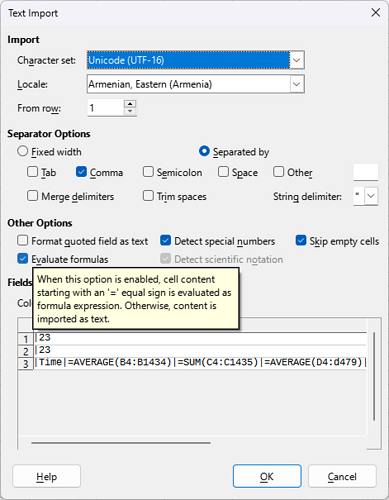snippit of python code thats calcs Sums & Av works on pi arch64 but not to windows 10
def get_header():
#open CSV file and assign header
headerList = ['Time', '=ROUND(AVERAGE(B4:B1400),1)', '=ROUND(SUM(C4:C1400),1)', \
'=ROUND(AVERAGE(D4:d479),1)',"=ROUND(AVERAGE(E4:E479),1)","..xx..","=ROUND(AVERAGE(G4:G479),1)",\
'=ROUND(AVERAGE(H481:H958),1)',"=ROUND(AVERAGE(I481:I958),1)","..xx..","=ROUND(AVERAGE(K481:K958),1)",\
'=ROUND(AVERAGE(L961:L1435),1)',"=ROUND(AVERAGE(M961:M1435),1)","..xx..","=ROUND(AVERAGE(O961:O1435),1)",\
'=ROUND(AVERAGE(P480:P960),1)'," Ph1 ","=ROUND(AVERAGE(R480:R960),1)"," Ph3 ","Ext"]
with open ("/home/pi/Logs_"+month_now+"/Batt"+day_now+".csv","a",newline="") as csvfile :
#with open("/home/pi/Desktop/SolarData_Feb/Batt_Amp_02.csv", 'a') as file:
dw = csv.DictWriter(csvfile, delimiter=',',fieldnames=headerList)
dw.writeheader()
time.sleep(1)

